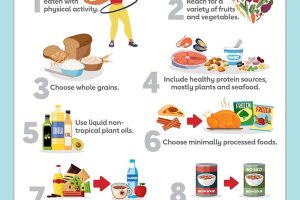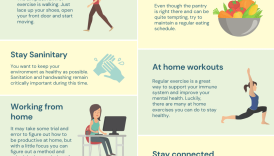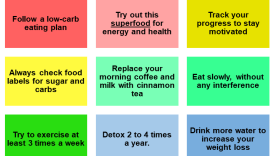Heart Health: Tips and Tricks for a Vibrant Life

Importance of Heart Health
Heart health is a cornerstone of overall wellness. A well-functioning heart not only supports physical activities but also plays a critical role in maintaining emotional and mental health. Imagine the heart as the engine of a car; without routine maintenance, it can break down, leading to serious consequences. Given the heart’s role in pumping blood and supplying oxygen to the body’s tissues, prioritizing heart health is akin to investing in a reliable vehicle for life.
- Heart Health: Tips and Tricks for a Vibrant Life
- Importance of Heart Health
- Common Risk Factors
- Balanced Diet for a Healthy Heart
- Foods to Include
- Foods to Avoid
- Regular Physical Activity
- Cardiovascular Exercises
- Strength Training
- Stress Management for Heart Health
- Meditation Techniques
- Relaxation Strategies
- Quality Sleep for a Healthy Heart
- Sleep Hygiene Tips
- Importance of Restful Sleep
- Monitoring Heart Health
- Regular Check-ups
- Understanding Heart Health Metrics
- Quitting Smoking for a Healthier Heart
- Risks of Smoking
- Steps to Quit Smoking
- Maintaining a Healthy Weight
- Tips for Weight Management
- Impact of Obesity on Heart Health
- Limiting Alcohol Consumption
- Recommended Limits
- Effects of Excessive Drinking on the Heart
- Heart-Healthy Recipes
- Breakfast Ideas
- Dinner Recipes
- Supplements for Heart Health
- Essential Nutrients
- Vitamins and Minerals
- XII. Heart Health for Different Age Groups
- Heart Health Tips for Young Adults
- Heart Health Guidelines for Seniors
- XIII. Heart-Healthy Habits for the Whole Family
- Incorporating Healthy Habits
- Promoting Heart Health in Children
- XIV. Effect of Stress on Heart Health
- Stress-Related Heart Conditions
- Coping Mechanisms and Strategies
- XV. Conclusion
- Importance of a Heart-Healthy Lifestyle
- Taking Charge of Your Heart Health
Common Risk Factors
Understanding the risk factors associated with heart disease is essential for prevention. Here are some common contributors:
- High Blood Pressure: Often referred to as the “silent killer,” it places extra strain on the heart.
- High Cholesterol: Elevated cholesterol levels can lead to plaque buildup in arteries, increasing the risk of heart attacks.
- Sedentary Lifestyle: A lack of physical activity weakens the heart and increases the risk of obesity.
- Unhealthy Diet: Consuming processed foods high in sugar and fat can contribute to heart disease.
- Smoking: This habit significantly damages blood vessels and reduces oxygen delivery.
By recognizing these factors, individuals can take proactive steps toward a healthier heart.
Balanced Diet for a Healthy Heart
Foods to Include
A balanced diet is vital for maintaining heart health. Incorporating the right foods can make a significant difference. Consider adding these heart-friendly options to your meals:
- Fruits and Vegetables: Rich in vitamins and antioxidants, aim for a colorful variety daily.
- Whole Grains: Oats, quinoa, and brown rice help lower cholesterol and maintain a healthy weight.
- Lean Proteins: Opt for fish, beans, and skinless poultry to reduce saturated fat intake.
- Healthy Fats: Avocados, olive oil, and nuts are excellent sources of omega-3 fatty acids which promote heart health.
Foods to Avoid
Conversely, there are certain foods one should steer clear of for better heart health. Avoid:
- Processed Foods: Often high in sugars, sodium, and unhealthy fats, they can wreak havoc on your heart.
- Red and Processed Meats: Foods like bacon and sausage can lead to higher cholesterol levels.
- Sugary Beverages: Sodas and energy drinks contribute to weight gain and diabetes, both risk factors for heart disease.
Choosing wisely can be your armor against heart disease while enhancing overall health. Making small changes today can lead to a healthier tomorrow!
Regular Physical Activity
Cardiovascular Exercises
Regular physical activity is crucial for maintaining heart health, and cardiovascular exercises play a key role in this. Engaging in activities that raise your heart rate not only strengthens your heart but also improves circulation. Popular cardiovascular workouts include:
- Walking or Jogging: Even a brisk walk for 30 minutes a day can make a significant difference.
- Cycling: Riding a bike outdoors or on a stationary bike can be both enjoyable and beneficial.
- Swimming: A low-impact option that works the entire body while being easy on the joints.
These activities can also boost your mood, making it easier to stay motivated.
Strength Training
In addition to cardio, incorporating strength training into your routine is essential for a holistic approach to heart health. It helps build muscle mass, which in turn aids metabolism and fat loss. Consider these tips for effective strength training:
- Bodyweight Exercises: Push-ups, squats, and lunges require no equipment and can be done anywhere.
- Weightlifting: Using dumbbells or resistance bands can enhance muscle strength and endurance.
- Consistency: Aim for at least two sessions a week focusing on major muscle groups.
By making physical activity a regular part of your lifestyle, you’ll not only nurture your heart but also enhance your overall quality of life.
Stress Management for Heart Health
Meditation Techniques
Managing stress is essential for heart health, as elevated stress levels can lead to increased blood pressure and heart strain. One effective method for bringing balance back into your life is through meditation. Simple techniques everyone can try include:
- Mindfulness Meditation: Focus on the present moment by observing thoughts without judgment.
- Guided Imagery: Envision tranquil scenarios that promote relaxation, such as a peaceful beach or serene forest.
- Deep Breathing Exercises: Practice inhaling deeply for a count of five, holding for two, and slowly exhaling for seven.
By incorporating these meditation techniques into your daily routine, you cultivate a calm mindset that supports your heart.
Relaxation Strategies
In addition to meditative practices, various relaxation strategies can help mitigate stress. Personal favorites include:
- Yoga: Combines physical movement, breathing, and mindfulness to enhance relaxation.
- Progressive Muscle Relaxation: Tense and then release each muscle group to relieve tension throughout the body.
- Time Outdoors: Spending time in nature can rejuvenate your spirit and lower stress levels.
Integrating these relaxation strategies not only soothes the mind but also contributes to overall cardiovascular well-being. By managing stress effectively, you can make lasting improvements to your heart health.
Quality Sleep for a Healthy Heart
Sleep Hygiene Tips
After addressing stress management, it’s vital to recognize the role of quality sleep in heart health. Practicing good sleep hygiene can significantly enhance sleep quality. Here are some useful tips:
- Establish a Routine: Go to bed and wake up at the same time every day to regulate your body clock.
- Create a Relaxing Environment: Keep your bedroom cool, dark, and quiet, and consider using white noise if necessary.
- Limit Screens Before Bed: Reduce exposure to blue light from phones and computers at least an hour before sleep.
By fostering these habits, you can pave the way for better rest.
Importance of Restful Sleep
Restful sleep is not just about the number of hours; it’s about quality. Sleep plays a crucial role in heart health by allowing the body to repair itself and regulate hormones that control appetite and stress. Studies show that insufficient sleep can elevate the risk of cardiovascular diseases, including hypertension and heart attacks. Incorporating these sleep hygiene tips not only helps improve the quality of your sleep but also contributes to a healthier heart, boosting your overall well-being. Prioritizing restful sleep is a simple yet powerful way to take charge of your heart health.
Monitoring Heart Health
Regular Check-ups
Following proper sleep practices, monitoring heart health is crucial for long-term wellness. Regular check-ups with your healthcare provider can help identify potential issues early on. Consider scheduling appointments at least once a year. During these visits, healthcare professionals can:
- Measure Blood Pressure: High blood pressure often has no symptoms, making regular checks essential.
- Review Blood Work: Cholesterol levels can be assessed through a simple blood test, guiding dietary and lifestyle choices.
- Discuss Symptoms: Bring up any concerns, such as fatigue or chest discomfort, for further evaluation.
By staying proactive with check-ups, you empower yourself to take charge of your heart health.
Understanding Heart Health Metrics
It’s also vital to understand key heart health metrics to make informed decisions. Familiarizing yourself with the following can lead to better outcomes:
- Cholesterol Levels: Aim for an LDL (bad cholesterol) under 100 mg/dL and an HDL (good cholesterol) over 60 mg/dL.
- Blood Pressure Numbers: A healthy range is typically around 120/80 mmHg.
- Heart Rate: A resting heart rate between 60 and 100 beats per minute is generally considered normal.
By regularly monitoring these metrics, you can effectively track your heart health status and make lifestyle adjustments as needed. Understanding these factors not only helps you manage your health but also inspires you to lead an active, heart-healthy life.
Quitting Smoking for a Healthier Heart
Risks of Smoking
As you continue to prioritize heart health, it’s crucial to address the dangers of smoking. Smoking is a major risk factor for heart disease and can damage your cardiovascular system in several ways:
- Increased Blood Pressure: Nicotine raises heart rates and blood pressure, making the heart work harder.
- Reduced Oxygen Supply: Carbon monoxide from cigarette smoke binds to hemoglobin, limiting oxygen transport in the blood.
- Plaque Buildup: Smoking contributes to the formation of plaque in arteries, which can lead to heart attacks.
By understanding these risks, you can better appreciate the importance of quitting for the health of your heart.
Steps to Quit Smoking
Quitting smoking may seem daunting, but with the right strategies, it is entirely achievable. Here are some effective steps to help you kick the habit:
- Set a Quit Date: Choose a specific day within the next two weeks to quit.
- Identify Triggers: Pay attention to situations or emotions that trigger the urge to smoke and plan how to cope.
- Seek Support: Inform family and friends of your goal; consider joining a support group or utilizing hotlines.
- Explore Nicotine Replacement Therapy: Options like patches or gum can help ease withdrawal symptoms.
- Stay Active: Engage in physical activities to divert your focus and improve your mood.
By taking these steps, not only will you improve your heart health, but you’ll also enhance your overall quality of life. Quitting smoking is a significant commitment, but the benefits are truly life-changing.
Maintaining a Healthy Weight
Tips for Weight Management
As you continue your journey towards heart health, maintaining a healthy weight is essential. It not only lowers the risk of heart disease but also enhances overall well-being. Here are some practical tips for effective weight management:
- Portion Control: Be mindful of serving sizes and listen to your body’s hunger cues.
- Balanced Diet: Incorporate plenty of fruits, vegetables, lean proteins, and whole grains into your meals.
- Stay Hydrated: Sometimes thirst is mistaken for hunger; drinking water can help curb unnecessary snacking.
- Regular Exercise: Aim for at least 150 minutes of moderate aerobic activity each week, combined with strength-training exercises.
By adopting these habits, you can maintain a healthy weight and promote your heart health.
Impact of Obesity on Heart Health
Understanding the impact of obesity is vital in maintaining heart health. Excess weight can lead to various complications, including:
- Increased Blood Pressure: Obesity is closely linked to higher blood pressure levels, straining the heart.
- Higher Cholesterol Levels: Fat accumulation can raise LDL cholesterol and lower HDL cholesterol, increasing heart disease risks.
- Diabetes Risk: Obesity heightens the risk of developing type 2 diabetes, a significant risk factor for heart conditions.
By recognizing these potential dangers, individuals can take proactive steps to manage their weight and foster a healthier heart. Maintaining a healthy weight not only adds years to your life but also improves the quality of those years.
Limiting Alcohol Consumption
Recommended Limits
Continuing on the path to better heart health, it’s important to talk about alcohol consumption. While moderate drinking can be part of a balanced lifestyle, knowing the recommended limits is crucial. Generally, guidelines suggest:
- Women: Up to one alcoholic drink per day.
- Men: Up to two alcoholic drinks per day.
Remember, a “drink” typically means one 12-ounce beer, 5 ounces of wine, or 1.5 ounces of distilled spirits. Keeping these limits in mind helps you enjoy social occasions without compromising your heart health.
Effects of Excessive Drinking on the Heart
On the flip side, excessive drinking can have detrimental effects on your heart health. Consider these impacts:
- Increased Blood Pressure: Heavy drinking can elevate blood pressure levels, leading to hypertension.
- Cardiomyopathy: Chronic alcohol abuse can weaken the heart muscle, affecting its ability to pump blood effectively.
- Arrhythmias: Binge drinking can cause irregular heartbeats, increasing the risk of heart disease.
By limiting alcohol consumption and being aware of its effects, you can safeguard your heart health and thrive in your everyday life. Making mindful choices regarding alcohol is a simple yet effective step towards a healthier heart.
Heart-Healthy Recipes
Breakfast Ideas
As you continue your journey toward heart health, nourishing your body with delicious, wholesome meals is vital. Starting your day right can set a positive tone. Here are a few heart-healthy breakfast ideas:
- Oatmeal with Fruit: Cook up a bowl of oatmeal topped with berries and a sprinkle of nuts for added fiber and antioxidants.
- Avocado Toast: Whole-grain toast layered with smashed avocado, topped with a poached egg and a touch of chili flakes, makes for a filling breakfast.
- Smoothie Bowl: Blend spinach, banana, and almond milk, then pour it into a bowl and top with your favorite seeds and fruits.
Dinner Recipes
Moving on to dinner, preparing heart-healthy recipes can be both easy and satisfying. Try these:
- Grilled Salmon: Season salmon with lemon, garlic, and herbs, then grill. Serve with quinoa and steamed broccoli for a balanced meal rich in omega-3 fatty acids.
- Chickpea Salad: Toss chickpeas, diced cucumbers, tomatoes, and parsley with olive oil and lemon juice for a protein-packed vegetarian dish.
- Stuffed Bell Peppers: Fill bell peppers with a mixture of brown rice, black beans, corn, and spices, then bake until tender.
By incorporating these heart-healthy recipes into your meal planning, you can enjoy delicious flavors while nurturing your heart. Making mindful food choices doesn’t mean sacrificing taste; it opens the door to new culinary experiences!
Supplements for Heart Health
Essential Nutrients
As you continue to focus on heart health through diet and lifestyle, incorporating supplements can be beneficial if your nutrient intake is inadequate. Here are some essential nutrients for heart health:
- Omega-3 Fatty Acids: Often found in fish oil supplements, these healthy fats help lower triglycerides and reduce the risk of heart disease.
- CoQ10: This powerful antioxidant supports energy production in cells and may help improve heart function.
- Fiber: If meeting daily fiber goals is challenging through diet alone, consider a fiber supplement to support heart health and cholesterol levels.
Vitamins and Minerals
In addition to essential nutrients, certain vitamins and minerals play a crucial role in maintaining a healthy heart. Consider these:
- Vitamin D: Low levels have been linked to increased cardiovascular risk; a supplement can help maintain optimal levels.
- Magnesium: Important for muscle function, including the heart, magnesium can help regulate blood pressure.
- Potassium: Supports healthy blood pressure and is vital for heart function; supplements can help if your diet lacks potassium-rich foods.
By thoughtfully incorporating these supplements into your daily routine, you can support your heart health alongside a balanced diet. Always consult with a healthcare provider before starting new supplements to ensure they align with your individual needs and health goals.
XII. Heart Health for Different Age Groups
Heart Health Tips for Young Adults
As you navigate your twenties and thirties, it’s crucial to establish healthy habits that can set the foundation for long-term heart health. Here are some tips specifically for young adults:
- Stay Active: Aim for at least 150 minutes of moderate exercise each week, whether it’s jogging, dancing, or participating in sports.
- Build Healthy Eating Habits: Emphasize whole foods like fruits, vegetables, and whole grains while minimizing processed foods.
- Manage Stress: Develop coping mechanisms such as meditation or yoga to maintain a balanced lifestyle.
These practices not only promote heart health but also enhance overall well-being.
Heart Health Guidelines for Seniors
As individuals age, prioritizing heart health becomes even more critical. For seniors, consider these guidelines:
- Regular Check-ups: Schedule consistent visits with a healthcare provider to monitor blood pressure, cholesterol, and other heart health metrics.
- Nutritious Diet: Focus on a diet rich in fiber, lean proteins, and healthy fats while staying hydrated.
- Engage in Gentle Activities: Activities like walking, tai chi, or swimming help maintain cardiovascular health without excessive strain.
By adapting heart health strategies to different life stages, everyone can contribute to a healthier heart and a better quality of life. Making informed choices tailored to age-specific needs is a key component in preserving cardiovascular health over time.
XIII. Heart-Healthy Habits for the Whole Family
Incorporating Healthy Habits
Continuing your journey towards heart health, it’s important to involve the entire family in adopting heart-healthy habits. By making these changes collectively, everyone can benefit. Here are some ideas to get started:
- Family Meal Prep: Involve everyone in preparing heart-healthy meals using fresh fruits, vegetables, and whole grains.
- Active Family Outings: Instead of watching a movie or playing video games, plan outdoor activities like hiking, biking, or playing sports together.
- Limit Screen Time: Encourage the family to set limits on screen time and replace it with physical activities or board games.
These practices create a supportive environment that fosters heart health for all.
Promoting Heart Health in Children
When it comes to children, teaching heart-healthy habits early on can have lasting effects. Consider these strategies:
- Educate About Nutrition: Help children understand the benefits of eating healthy foods by involving them in shopping and cooking.
- Encourage Regular Exercise: Participate in physical activities together, such as swimming, dancing, or team sports.
- Lead by Example: Model healthy behaviors yourself—kids are more likely to adopt good habits when they see their parents or caregivers doing the same.
By fostering an atmosphere of health and well-being, families can work together to ensure a lifetime of heart health. Promoting these habits not only nurtures physical health but also strengthens family bonds and creates stronger memories.
XIV. Effect of Stress on Heart Health
Stress-Related Heart Conditions
Building on the importance of maintaining a healthy lifestyle for the whole family, it’s essential to recognize the significant impact that stress can have on heart health. Chronic stress can lead to various stress-related heart conditions, including:
- Hypertension: Ongoing stress can result in elevated blood pressure, putting extra strain on the heart.
- Heart Disease: Prolonged stress may contribute to the development of heart disease due to factors like inflammation and unhealthy coping mechanisms.
- Arrhythmias: Stress can trigger irregular heartbeats, causing discomfort and increasing the risk of more serious heart issues.
Understanding these risks highlights the necessity of effective stress management in maintaining heart health.
Coping Mechanisms and Strategies
While stress is inevitable, the way we manage it can make all the difference. Here are some coping mechanisms and strategies to help mitigate stress:
- Practice Mindfulness: Engage in mindfulness exercises, such as meditation or deep breathing, to promote relaxation.
- Regular Exercise: Physical activity is a powerful stress reliever; aim for at least 30 minutes each day.
- Stay Connected: Foster strong social connections with family and friends to share feelings and experiences.
By adopting these strategies, you can create a buffer against stress’s negative effects on heart health. Embracing a proactive approach to stress management not only supports cardiovascular wellness but also enhances overall quality of life. Remember, it’s about progress, not perfection!
XV. Conclusion
Importance of a Heart-Healthy Lifestyle
As we wrap up our discussion on heart health, it’s clear that adopting a heart-healthy lifestyle plays a pivotal role in reducing the risk of cardiovascular diseases. Making conscious choices—like eating nutritious foods, maintaining an active lifestyle, managing stress, and limiting alcohol—can significantly enhance not just your heart health, but your overall well-being. Consider this: small changes can lead to big results. Whether it’s taking a daily walk or choosing a healthy snack, each step counts towards a healthier heart.
Taking Charge of Your Heart Health
Taking charge of your heart health is an empowering journey, and it starts with you. Regular check-ups, staying informed about heart health metrics, and surrounding yourself with supportive family and friends are all effective strategies to ensure longevity. Remember, it’s never too late to make positive changes. Empower yourself with knowledge, foster healthy habits, and inspire those around you. The path to a healthier heart is within your reach, and every effort you make is a step toward a longer, happier life. Prioritize your heart—and it will thank you!





